Chief Medical Officer Dr Brendan Murphy on moment he knew coronavirus would change the world forever
Dr Brendan Murphy is responsible for telling Prime Minister Scott Morrison and his government how to manage the coronavirus pandemic — and recalls the moment he realised the Australian way of life would change forever.
VIC News
Don't miss out on the headlines from VIC News. Followed categories will be added to My News.
In the age of coronavirus, Australians have had to swap birthday parties, trips to the playground and hugs for Zoom calls, FaceTime chats and emojis.
Following the advice of Chief Medical Officer Professor Brendan Murphy is not easy — and he is not immune.
He offers elbow taps in the air instead of handshakes. He can’t wait to go back to the gym three times a week. Most of all, he misses his two-year-old granddaughter Anna.
Murphy is making the most of technology to see her when he can. But, unlike the rest of us, she’s got an added advantage — she gets to see her grandad on TV almost every night.
In less than four months, Murphy has gone from a little-known health bureaucrat to one of the most recognisable — and influential — people in the country.
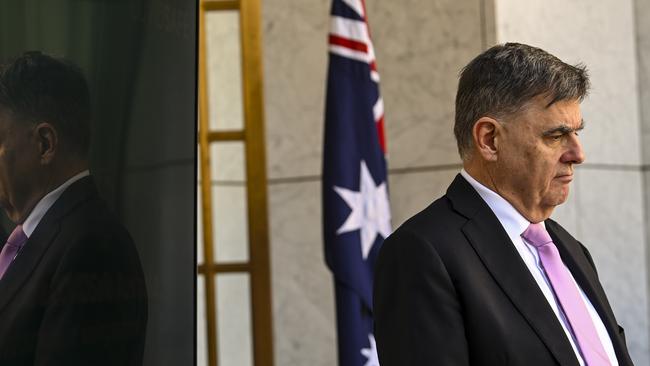
He leads the Australian Health Principal Protection Committee (AHPPC), a powerful group of experts responsible for telling Scott Morrison and state and territory leaders how to fight the virus. He is regularly by the Prime Minister’s side — 1.5m apart, of course — armed with a slide show to explain the latest changes to our lives.
Millions of us tune in to his press conferences to learn whether we can send our kids to school, if cafes can still serve takeaway coffees, how the footy season might start again and when this crisis will ever end.
Before spending time with the Herald Sun this week, Murphy snuck out of the Health Department’s Canberra headquarters to go to the post office.
He was stopped by four people, having forgotten the disguise of a cap and sunglasses he uses on weekend walks to restore the anonymity he has enjoyed for most of his 65 years.
“It’s quite disconcerting,” Murphy says.
“People are almost invariably nice and positive, but it is an unusual phenomenon for someone like me to be recognised in public.”
It’s even more unusual because the day after Murphy’s first press conference about the coronavirus — back on January 21, when he said there was “no need for alarm” in Australia — he got a new job.
Morrison picked him to be the next Health Department secretary, making him the first medical doctor to fill the key role.
Murphy was supposed to start on February 29. But that was put on hold after a sunny Saturday morning on February 1, when he was sitting at his kitchen table in Melbourne.
Murphy pored over the latest coronavirus case data — and alarm bells started going off.
There was clear evidence of human-to-human transmission and it was too late to lock down the virus in China.
“That was a bit of a game-changing moment,” he recalls.
Murphy rang Health Minister Greg Hunt and told him Australia had to shut the border to China.
Hunt got Morrison on the phone, the border was closed that night and, as Murphy says, “the rest is history”.
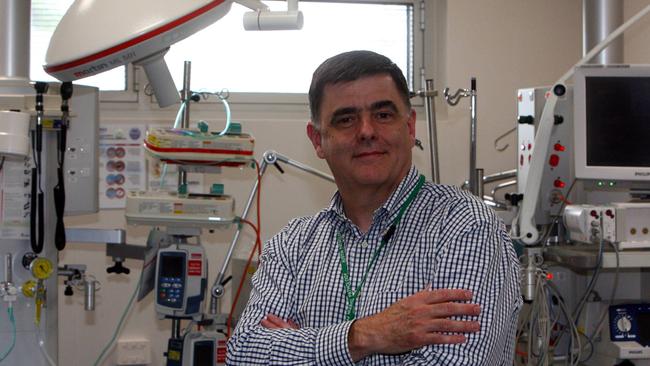
HAWTHORN TO HUSTINGS
Brendan Murphy grew up in Hawthorn, the son of two clinical psychologists, Leo and Betty.
They sent him down the road to Preshil in Kew for his primary school years, which he remembers as a “slightly alternative” education, where students didn’t have to wear uniforms or address teachers by formal titles.
High school was more traditional, at the elite Melbourne Grammar, before Murphy decided to study medicine at the University of Melbourne.
He was the only one of his siblings to follow in his parents’ footsteps and pursue a medical career.
His brother Fintan and sister Kerry were more influenced by their mother’s love of classical music, with Fintan now a successful violinist and the music director of the Melbourne String Ensemble, and Kerry a musicology professor at the Melbourne Conservatorium.
Brother Liam is a law professor in New York — the epicentre of the coronavirus in the US.
While Murphy, a father of two, has been leading Australia’s response, he has kept in touch with his family over emails and WhatsApp messages.
Fortunately, Liam’s family was able to escape New York City to their home upstate two months ago.
“They’ve been in exile there,” Murphy says. “They haven’t dared go back to Manhattan.”
Murphy himself has also had to move because of the virus. He is usually based in Melbourne with wife Sally Walker, who was the first female vice-chancellor of Deakin University and was awarded a Member of the Order of Australia in 2011 for her contribution to education, law and advancement of women.
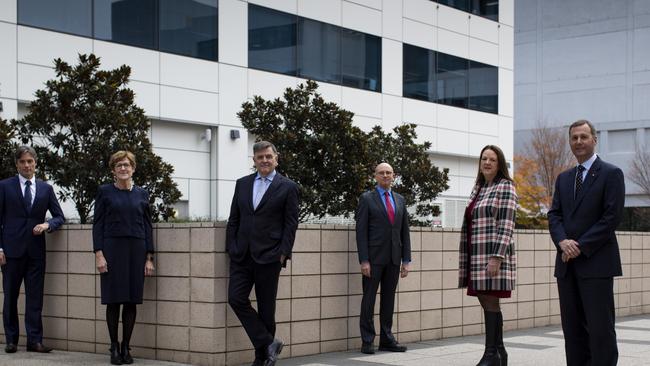
When the enormity of the pandemic became clear, Murphy decided to stay put in Canberra instead of his usual routine of commuting home on weekends, and Sally flew up to join him.
“Staying just in what used to be my weekday flat, which was really designed for just me — the two of us there for two months, that’s been challenging,” he laughs.
But it’s not as though he’s had time to lounge around at home. Murphy has worked almost every day since late January — although he is now trying to take Saturdays off — and he finds himself in the office for 12 hours on a good day.
“On a busy night, if there’s national cabinet on, I’m sometimes here until 11 or 12,” he says.
It is only two months since the national cabinet — featuring Morrison and the state and territory leaders — was formed.
Murphy briefed them that day and recommended a ban on gatherings of more than 500 people, which spelled the end of major festivals, concerts and sporting events.
While Murphy isn’t a football fan, he knew the enormity of that decision.
“They were taken aback but they took it in their stride. One of the enduring features of this whole pandemic has been the degree to which our political leaders have wanted frank and fearless advice and have acted on it.”
He says the toughest call of the pandemic was made a week and a half later, when the AHPPC decided pubs, clubs, restaurants and gyms needed to close, putting hundreds of thousands of people out of work.
“Even though we’d put in really good border measures, we didn’t feel we could control it properly without some of those measures, and that had a huge impact on people,” Murphy says.
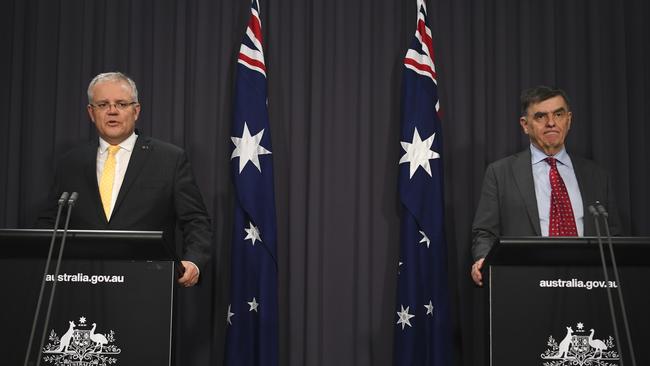
TEAM EFFORT
While Murphy has become the public face of Australia’s fight against the coronavirus, he is full of praise for the team of deputy chief medical officers assembled to spearhead our response.
Professor Paul Kelly is an experienced public health physician and epidemiologist who helped develop our national influenza surveillance system. Dr Nick Coatsworth is a specialist in respiratory medicine and infectious diseases who has worked on the frontline during epidemics around the world.
Professor Michael Kidd is a GP and a world-leading authority on primary healthcare, while Dr Jenny Firman is the chief health officer at the Department of Veterans’ Affairs who has worked on ebola and the zika virus.
The team also includes Chief Nursing and Midwifery Officer Alison McMillan, who held the same role in Victoria until late last year, as well as defence force and emergency management officials, academics, modellers and infectious diseases experts.
Murphy is a professor of nephrology, a specialty focused on the kidneys.
In the past, the AHPPC only met a few times a year. Now, they talk for two hours every day.
While some members of the panel have more public health experience than Murphy, he describes his role as “bringing people together and reaching consensus and getting the opinion of others”.
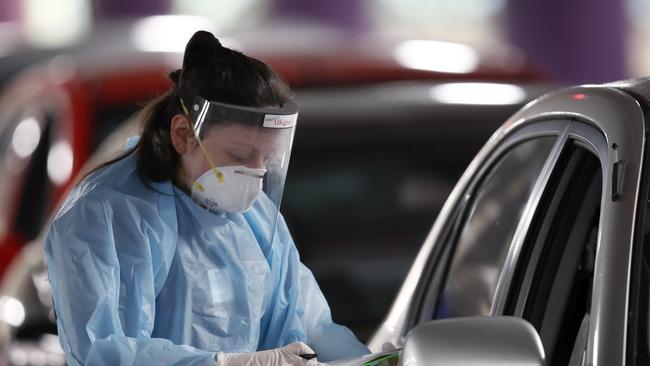
“The most important thing is to get the collective buy-in of every jurisdiction into a decision,” he says, something that has been achieved on every big call, with the exception of Victoria’s unwillingness to reopen schools despite the panel affirming they were safe.
Murphy says Victoria’s Chief Health Officer Brett Sutton was more concerned about having a million people travelling to get kids to and from school.
“Some people are more cautious than others, and that might depend a bit on the epidemiology in their state or territory. We’ve seen that Western Australia has gone a lot easier than Victoria,” he says.
Prior to his appointment as the Chief Medical Officer in late 2016, Murphy spent
11 years running Melbourne’s Austin Hospital.
That experience came to the fore when the national cabinet urgently needed to ensure we had enough ventilators, masks and gowns for hospitals to handle an influx of patients and prevent a repeat of the horrors seen overseas.
“Some people were saying we should aim for 20,000 critical care beds — well, I know we just couldn’t staff that, we couldn’t make it work.”
McMillan, who also worked at the Austin for more than a decade, says Murphy and the team have developed a “very positive environment” to share ideas and produce clear, thoughtful and consistent advice.
“The collaboration and support and camaraderie is as rewarding today as when I was a ward nurse,” McMillan says.
While playing a key role in shaping the nation’s virus response, McMillan has also been on the frontline herself, serving as the nurse lead on the Australian Medical Assistance Team sent to Japan to extricate Australians on the Diamond Princess cruise ship.
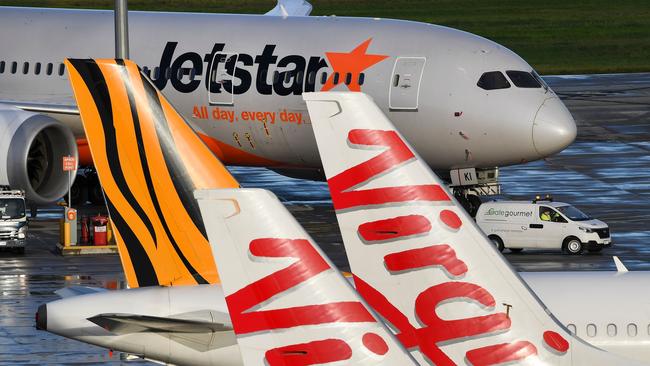
McMillan had just a few hours’ notice before she flew to Japan, where she was responsible for the logistics of screening passengers, checking their medical histories, getting them out of their cabins and on to buses and planes back home.
It was a complicated situation, but it wasn’t all that unusual for her — McMillan has been involved in several overseas AUSMAT missions and received a National Emergency Medal for her service in the aftermath of the Black Saturday bushfires.
“All my career, you do potentially expose yourself to things,” McMillan says.
“But we don’t do these jobs alone … we work strictly in teams and look after each other, and we have safeguards to keep each other safe.”
Hunt says the “commitment and fearless leadership” of Murphy, McMillan, Kelly and the team “is a true reflection of why Australia’s health system is at the global forefront”.
“I am incredibly grateful for the expertise and advice Brendan and the wider Health Department have been able to provide across every step of managing the coronavirus pandemic,” Hunt says. “Without this professional guidance, Australia would not be in the enviable position we are today.”
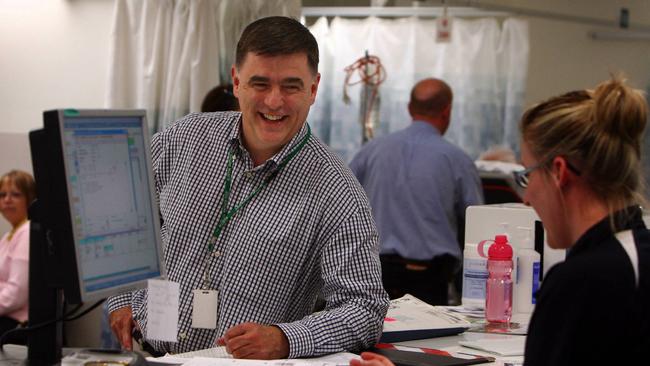
WAY FORWARD
Murphy can’t wait to hug his granddaughter again, but he knows better than anyone that social distancing is here to stay.
“This is a difficult thing to say: no one in the world has a clear endgame yet. At the moment, our strategy is to keep suppressing the virus, trying to keep releasing the economy and getting back into a new normal while we live with the virus, and then we have to reassess.”
He’s not sure when he’ll pass on the reins as the Chief Medical Officer, but is excited about eventually running the Health Department.
“Everything I’ve done in health is because I like reform, and I’d like to get back into leading some of the other things that were big priorities, the workforce strategy and looking at how we can come out the other side of this.”
Even prior to the pandemic, he concedes he has had “a very strange career”, switching from being a clinical researcher to a senior leader “without any real management training at all”.
His father had a similarly unique life, mixing his work as a psychologist with running a college for teachers of children with disabilities.
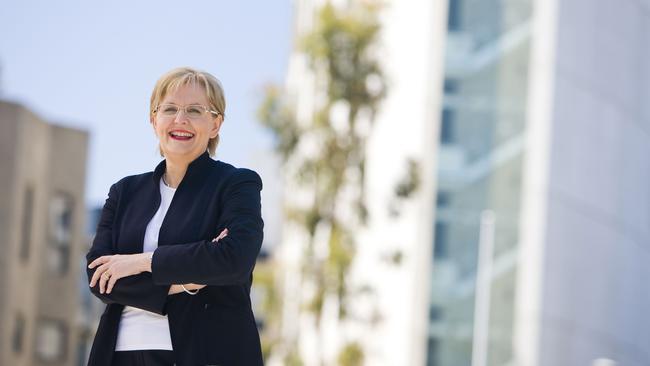
“I’ve always taken the view that if an opportunity comes, you take it even if you’re a bit frightened, and that’s come from him.”
A once-in-a-century pandemic would be enough to frighten anyone, but Murphy has remained unruffled and even cheerful over the last four months. He says he was most distressed when he saw the horrific death toll in Italy.
“That was probably the first realisation that a relatively high income country with a good health system could have missed widespread community transmission for probably weeks before they even knew they had it, and that this disease could overwhelm the health system in a high income country,” Murphy says.
As Australia starts to reopen its economy and society, the thought of a second wave is what keeps Murphy up at night.
“We’re on a life raft, other countries are still in the water, but we’re still not quite sure which direction to paddle the life raft. But we’re on it.”
From the Prime Minister down to people at Murphy’s local post office, Australians are trusting he is the man to lead the way.
MORE NEWS:
WHAT YOU CAN, CAN’T DO IN VICTORIA
RARE SYNDROMES SPIKE AFTER COVID-19

